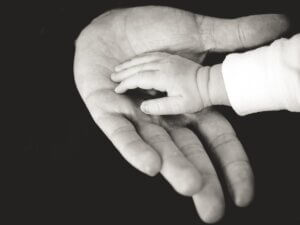God’s love validates His justice. God in His holiness must judge sin, but only does so after all avenues of His love are exhausted.
So he complained to the Lord about it: “Didn’t I say before I left home that you would do this, Lord? That is why I ran away to Tarshish! I knew that you are a merciful and compassionate God, slow to get angry and filled with unfailing love. You are eager to turn back from destroying people.” (Jonah 4:2)
One of the accusations God’s detractors make is that God is evil because He is responsible for so much death in the Bible. A particular argument is that a good God wouldn’t send people to Hell.
It is unfortunate that there are some people who have come to this conclusion about God. God is just and therefore must ultimately condemn sin, but He does not delight in it. In fact, God wishes everyone would accept Christ and be saved (1 Timothy 2:3-4).
Only when we genuinely ponder and examine the lengths God goes through to rescue us from our state of sin and condemnation do we understand that God’s love validates His justice. Let’s examine a few of the many examples from the Bible.
3 Examples Where God’s Love Validates His Justice
God Prevented Mankind From Being Irredeemable
From the very beginning, God grants free will to His creation. Adam and Eve had paradise – the most complete, beautiful state the earth has ever seen – and were given only one thing not to do. They were forbidden to eat from the Tree of Knowledge of Good and Evil (Genesis 2:16-17).
Once Adam and Eve made the choice to eat its fruit (Genesis 3:6-7), their disobedience introduced sin and decay into the universe.
God in turn banished Adam and Eve from the Garden of Eden, and guarded the Tree of Life with Cherubim – a specific class of angel – and a “flaming sword” (Genesis 3:24).
Now some might say, “they made one mistake, and God kicked them out of the Garden of Eden? How cruel!”
No, it was actually in our best interest. For you see, there were two trees in the garden.
The Tree of Life was the only other tree specifically identified, with no caveats. In other words, it was freely available to Adam and Eve, and seemed to be there specifically to sustain them for all time.
Had they eaten from the Tree of Life in the state of the curse, it appears that they would have sealed their fate for all time, and God says as much (Genesis 3:22).
God’s actions protected the human race from placing itself in an eternal state of sin and death. Even in the face of this rejection, God’s love validates His justice. It might have been just as easy for him to “reboot” the universe, if not for His love for His creation, but He didn’t.
We don’t know if this area was easily visible to later generations. If so, it would have been at least until the Flood. Which is another time we see God’s love validates His justice.
God Preserved Mankind Through the Flood
The most terrible, wide-ranging judgement in human history is recorded within the first chapters of the entire Bible.
The flood of Noah destroyed all life on the planet, save for 8 people, and all creatures, except for a few to repopulate the earth. It’s difficult to fully take in the scope of that sentence.
We look at the violence in today’s world with dismay. Now think of a world where for every human, “everything they thought or imagined was consistently and totally evil” (Genesis 6:5). How terrible would it be?
The term “Hell on Earth” would never be as fitting as it was at this time in history.
It was so bad that God actually regretted creating people. Think of that! The omniscient, omnipresent, omnipotent God was that close to rethinking what was once called “very good”. God’s wrath was certainly justified. And yet we are told “it broke His heart” (Genesis 6:6).
Obviously, we’re still here. For the sake of one righteous man, Noah, God preserved the human race. Once again, God’s love validates His justice.
God did deliver what the world had earned through a total rejection His ways. But God waited until there was only one righteous man left. God gave every human being alive at that time a chance to turn from evil, until only one person was left He could rescue.
Does this sound like God can’t wait to deliver justice? Does this sound like He is chomping at the bit to bring down judgement?
God Granted Mercy Even After He Declared Judgement on Ninevah
And finally, we see that God’s love validates His justice in today’s Bible reference. God had sent Jonah to deliver a message to the Ninevites. In 40 days after Jonah’s warning, the city of Nineveh would be destroyed (Jonah 3:4).
For context, Nineveh was one of the largest cities in the world – over 120,000 at the time – within the borders of Assyria.
To say Assyrians and the Israelites didn’t get along would be putting it mildly. The Bible records times of Assyria’s attacks on Israel and predicts Assyria’s at-the-time future invasion of Israel.
So for God to send Jonah to preach a warning within the gates of Nineveh can be considered an unusually gracious gesture indeed.
An interesting thing happens. The Ninevites – from the King downward – heed Jonah’s warning and show repentance. And God stays His judgement (Jonah 3:5-10).
When you read the text, God doesn’t qualify His judgement on Nineveh. He doesn’t say “you will be destroyed unless you repent.” Yet in the face of repentance, He stays His hand.
Jonah gets it right. Even as He complains to God, Jonah describes God accurately:
- Merciful
- Compassionate
- Slow to get angry
- Filled with unfailing love
- Eager to turn back from destroying people
God was prepared to give the Ninevites what they deserved. But as we can see, God is always willing to give us another chance when we sincerely repent and turn to Him. Even when He has already declared impending judgement.
How many more examples do we need that God’s love validates His justice? There are so many more we could talk about, but we really only need to mention one more. If the question of whether God’s love validates His justice were put to a courtroom, this would be the closing argument.
The Ultimate Example That God’s Love Validates His Justice
There are several more examples in the Bible of God showing great mercy, either in the face of repentance or as a reflection of His divine protection and preservation.
 Ultimately, He showed His great love for mankind by allowing His Son, Jesus Christ, to come to earth as a man and die as our once-for-all sacrifice for our sins. Jesus says there is no greater love than dying for a friend (John 15:13).
Ultimately, He showed His great love for mankind by allowing His Son, Jesus Christ, to come to earth as a man and die as our once-for-all sacrifice for our sins. Jesus says there is no greater love than dying for a friend (John 15:13).
With everything that God has done to give His creation every chance to choose Him, how can anyone claim that God acts in unloving ways? Or should God be expected to love, bless, and reward those who choose their own way and ignore God?
No. In Jesus Christ we have the ultimate proof that God’s love validates His justice. He did not spare His one and only Son from His justice, so that we might have the opportunity – the OPPORTUNITY – to be restored to Him, an opportunity that many still reject.
And even for those who have continually rejected God, they are given time upon time and chance upon chance to turn from their ways and follow Him. This is how God’s love validates His justice: through His kindness, tolerance and patience towards those who continue to refuse to turn from sin (Romans 2:4).
Even those that mock God and claim He is actually evil are given another chance to repent with every breath they are granted. Let us keep such people in prayer, that one day they will come to know God’s love, before they finally come to know His justice.
More Bible verses about how God’s love validates His justice:
1 Chronicles 16:34; Psalm 86:15; Lamentations 3:22-23; Ezekiel 33:11; John 3:16; Romans 8:38-39; 1 John 3:1






